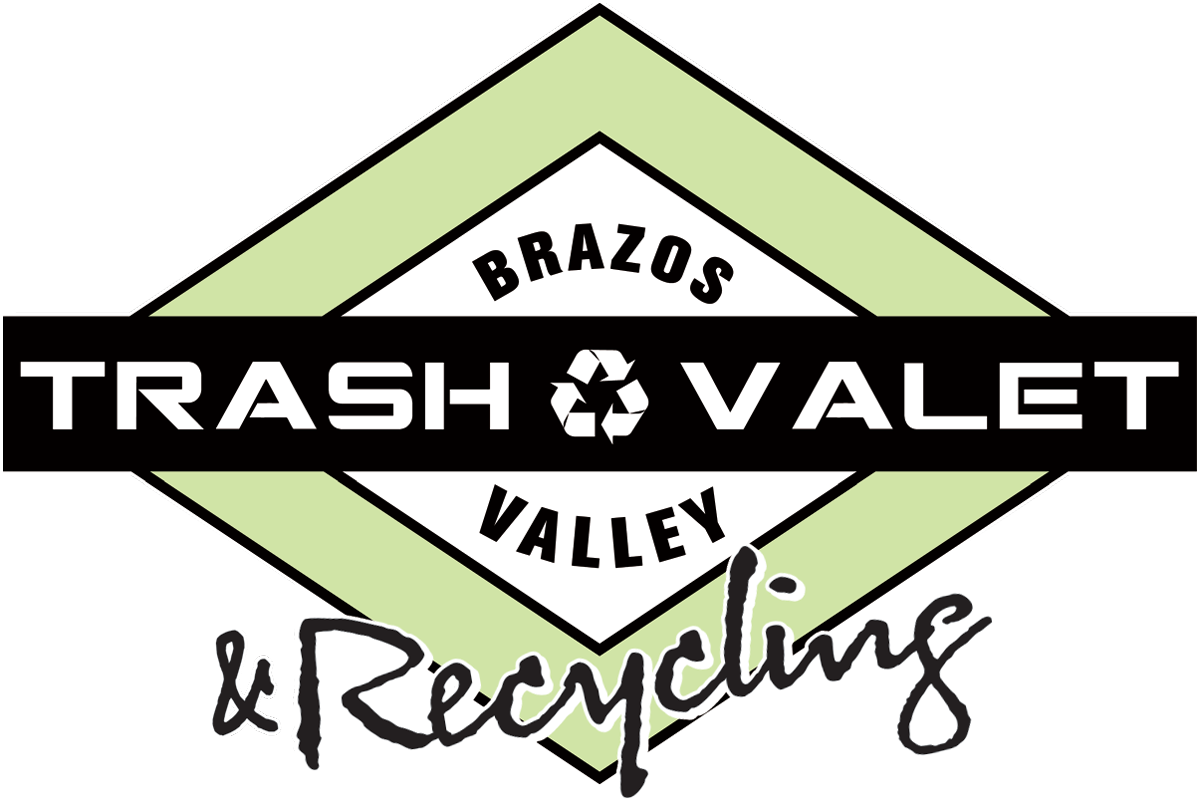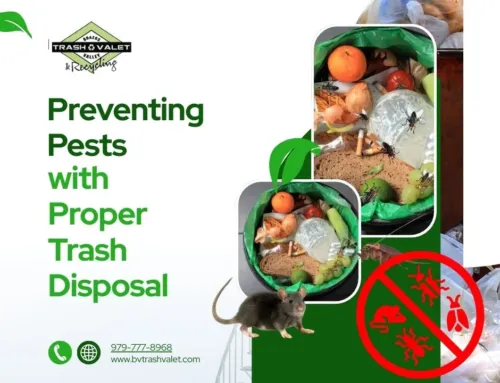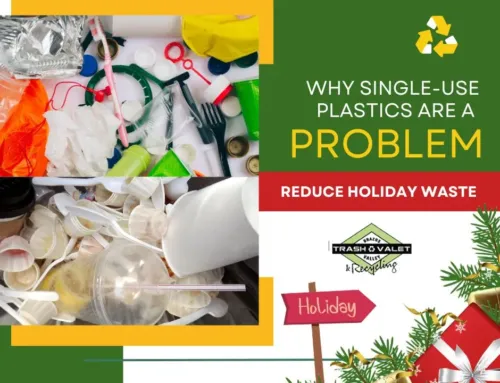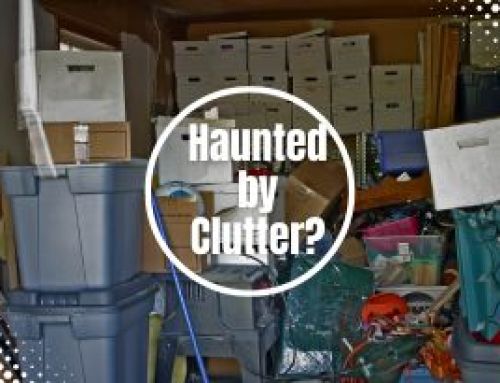Pet Waste Disposal: Environmentally Responsible Tips Beyond the Bag
Owning a pet brings endless joy, but it also comes with responsibilities—including how we handle their waste. Most pet owners are familiar with the standard “plastic bag and toss” method, but that approach isn’t always the most environmentally friendly. In fact, traditional disposal can contribute to landfill waste, microplastics, and even water contamination. Fortunately, there are smarter and greener ways to manage pet waste without sacrificing convenience.
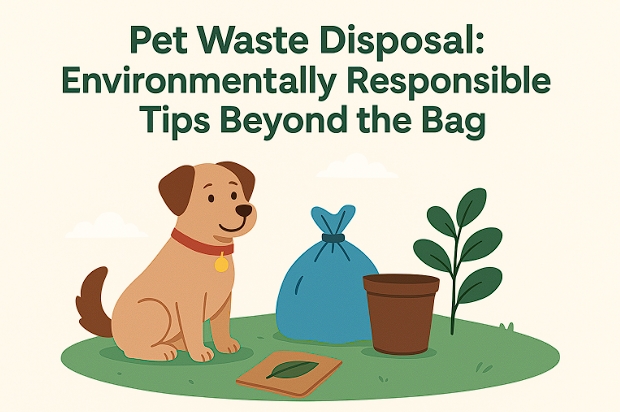
Why Pet Waste Disposal Matters
Pet waste isn’t just unpleasant—it can be harmful to the environment if not managed properly. Dog waste, for example, contains bacteria and parasites that can seep into groundwater or run off into rivers and streams. Cat litter often contains clay that isn’t biodegradable and can take years to break down. By exploring eco-friendly disposal options, pet owners can protect local ecosystems while reducing their household waste footprint.
Switch to Biodegradable Bags
If you’re still using single-use plastic bags, consider switching to biodegradable or compostable alternatives. These bags break down faster in landfills and minimize long-term plastic pollution. Look for certifications such as ASTM D6400 or EN 13432, which verify that the bags meet compostability standards. Keep a roll handy on walks, and you’ll instantly make your routine more sustainable.
Try Pet Waste Composting
Composting pet waste is becoming a popular option for eco-conscious households. While you should never use pet waste compost on edible plants, it can safely fertilize ornamental gardens, shrubs, or trees when done correctly. Specialized pet waste composters are available for backyard use and allow waste to decompose naturally over time. Just remember: proper temperature and aerobic conditions are key to breaking down pathogens.
Flushable Options for Cat Owners
Cat litter is another area where sustainable choices can make a big difference. Traditional clay litter is strip-mined and non-biodegradable, but eco-friendly alternatives like recycled paper, wood pellets, or wheat-based litter are biodegradable and often flushable. If you go the flushable route, check your local regulations first, since some municipalities restrict flushing pet waste to protect water treatment systems.
Consider Pet Waste Disposal Services
Some communities offer dedicated pet waste disposal or pickup services, similar to trash valet programs. These companies ensure waste is handled properly and kept out of landfills when possible. If you live in an apartment complex or HOA neighborhood, ask your property manager if this service is available—it’s a simple way to stay eco-friendly without the extra effort.
Reduce Waste Through Diet and Health
Believe it or not, what you feed your pet can influence the environmental impact of their waste. High-quality, digestible diets often lead to smaller and less odorous waste, reducing the volume you need to clean up. Regular vet visits also help ensure your pet’s digestive system is healthy, which benefits both your pet and the environment.
Making Eco-Friendly Choices Every Day
Disposing of pet waste responsibly doesn’t have to be complicated. By swapping out plastic bags, exploring composting, or trying biodegradable litter, you’re taking small but meaningful steps toward sustainability. Over time, these choices add up—not only keeping your community cleaner but also protecting the planet for future generations of pet lovers.
Share This Story, Choose Your Platform!
Pet Waste Disposal: Environmentally Responsible Tips Beyond the Bag
Owning a pet brings endless joy, but it also comes with responsibilities—including how we handle their waste. Most pet owners are familiar with the standard “plastic bag and toss” method, but that approach isn’t always the most environmentally friendly. In fact, traditional disposal can contribute to landfill waste, microplastics, and even water contamination. Fortunately, there are smarter and greener ways to manage pet waste without sacrificing convenience.

Why Pet Waste Disposal Matters
Pet waste isn’t just unpleasant—it can be harmful to the environment if not managed properly. Dog waste, for example, contains bacteria and parasites that can seep into groundwater or run off into rivers and streams. Cat litter often contains clay that isn’t biodegradable and can take years to break down. By exploring eco-friendly disposal options, pet owners can protect local ecosystems while reducing their household waste footprint.
Switch to Biodegradable Bags
If you’re still using single-use plastic bags, consider switching to biodegradable or compostable alternatives. These bags break down faster in landfills and minimize long-term plastic pollution. Look for certifications such as ASTM D6400 or EN 13432, which verify that the bags meet compostability standards. Keep a roll handy on walks, and you’ll instantly make your routine more sustainable.
Try Pet Waste Composting
Composting pet waste is becoming a popular option for eco-conscious households. While you should never use pet waste compost on edible plants, it can safely fertilize ornamental gardens, shrubs, or trees when done correctly. Specialized pet waste composters are available for backyard use and allow waste to decompose naturally over time. Just remember: proper temperature and aerobic conditions are key to breaking down pathogens.
Flushable Options for Cat Owners
Cat litter is another area where sustainable choices can make a big difference. Traditional clay litter is strip-mined and non-biodegradable, but eco-friendly alternatives like recycled paper, wood pellets, or wheat-based litter are biodegradable and often flushable. If you go the flushable route, check your local regulations first, since some municipalities restrict flushing pet waste to protect water treatment systems.
Consider Pet Waste Disposal Services
Some communities offer dedicated pet waste disposal or pickup services, similar to trash valet programs. These companies ensure waste is handled properly and kept out of landfills when possible. If you live in an apartment complex or HOA neighborhood, ask your property manager if this service is available—it’s a simple way to stay eco-friendly without the extra effort.
Reduce Waste Through Diet and Health
Believe it or not, what you feed your pet can influence the environmental impact of their waste. High-quality, digestible diets often lead to smaller and less odorous waste, reducing the volume you need to clean up. Regular vet visits also help ensure your pet’s digestive system is healthy, which benefits both your pet and the environment.
Making Eco-Friendly Choices Every Day
Disposing of pet waste responsibly doesn’t have to be complicated. By swapping out plastic bags, exploring composting, or trying biodegradable litter, you’re taking small but meaningful steps toward sustainability. Over time, these choices add up—not only keeping your community cleaner but also protecting the planet for future generations of pet lovers.
